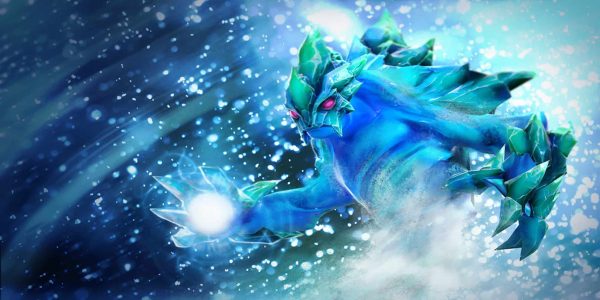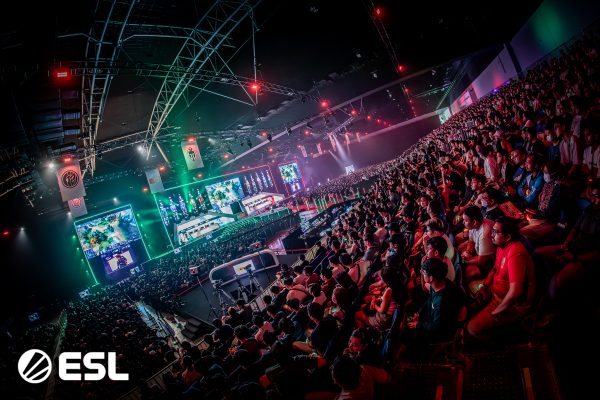Twenty-four hours after test 123, formerly Pain X, earned their ticket to the Chongqing Major, Valve has taken it away.
Twenty-four hours after test 123, formerly known as Pain X, earned their ticket to the Chongqing Major, Valve has taken it away.
In a statement posted to the official Dota 2 website, Valve indicated that the team did not conform to Valve’s concept of a team in the region. Instead, Thunder Predator, the third-place team in the South America Regional Qualifiers will take the region’s second slot at the Major. Thunder Predator has five Peruvian players.
Valve’s statement asserts the point of the Regional Qualifiers is to ensure representation for each region and encourage regional competitive growth. It goes on to say that, “A team temporarily traveling to and from a region just to compete in the qualifiers clearly does not provide any meaningful benefit to the region, and harms growth overall.” This can be compared to a team that lives in the region and participates in the region’s Dota 2 ecosystem. The latter team supports the development of a local fanbase and participates in the local competitive scene.
There was also some community backlash over test 123’s roster after Peter “ppd” Dager, Captain for the Ninjas in Pyjamas’ Dota 2 team, tweeted about the situation. Ppd indicated that he had inquired about his team playing in the region—effectively training in Europe but competing in qualifiers in South America. He indicated that he was told by Valve this was not appropriate.
Whether or not the overall community response spurred Valve to take action can only be speculated about at this stage.
The most painful part of the decision for Dota 2 fans might be that, publicly at least, the squad was directly invited to compete in the Regional Qualifiers on November 10. There were two full weeks before the Regional Qualifiers began for Valve to remove the team for failing to conform to the regional requirement. Valve indicated that they had spoken with the team about this very issue three months ago. Surely red flags should have been raised when the team’s name was floated for a direct invite.
The test 123 roster changed when the team left the Pain X organization on November 21. They dropped Adriano de Paula “4dr” Machado and picked up Kartik “Kitrak” Rathi. This reduced the number of South American players on the team to one. Perhaps it was this roster change that tipped the balance for Valve. However, there were still four days between this change and the start of the Regional Qualifier for Valve to withdraw the team.
Meanwhile, Valve still has not made a statement or public ruling regarding the alleged ban of TNC Predator’s Carlo “Kuku” Palad from the Chongqing Major. There is also no word yet regarding how TNC’s Major appearance will be impacted should the ban be in effect; will the team receive a Dota 2 Pro Circuit penalty for playing with a stand-in?
Related, it was reported that Quinn “CCnC” Callahan of test 123 was involved in his own racial slur moment last week. He publicly apologized in a tweet on November 24. No discussion of a ban of CCnC at the Chongqing Major was raised following this incident. The move by Valve to revoke the team’s invitation to the Major effectively takes this issue off the table while failing to address the alleged ban of Kuku.
While some will be elated by this move to ensure fair representation for South America, others may be disappointed by Valve’s approach. The decision by Valve to revoke test 123’s Major invitation after they competed to earn it suggests that Valve was not paying attention to the Regional Qualifier invitation process. There was ample time to remove the squad from the South American qualifier prior to the qualifier ending. The decision calls into question the integrity of all direct invites to the Regional Qualifiers.
Valve’s statement concludes with, “We will always reserve discretion to decide what is in the spirit of the regional goals and what is not. If a team wants to move to a new region completely, they are free to contact us and try to make their case on why they think they will be an actual team in that region going forward.”
Perhaps the organization should set out clear rules for what constituted a team from a particular region—is it the number of players with a relevant nationality? A number of players who live in that region? How long do they have to live there? Rather than ask teams to make a case privately, Valve could make it clear from the outset what their limits are. They could even still indicate teams are welcome to argue their case outside of those rules.
Instead, Valve reserves the right to make decisions at any stage while five young men go from the high of winning a spot at one of the most important Dota 2 tournaments of the year to being disqualified for “trying to bend the rules.”
What rules, Valve? Show us the rules.

